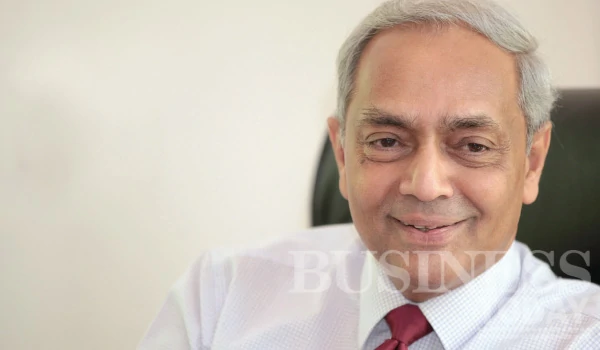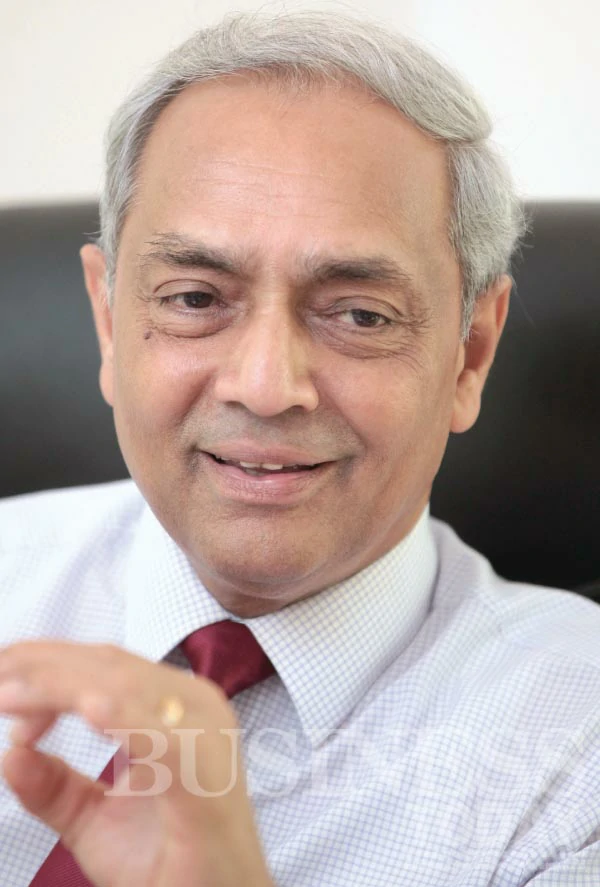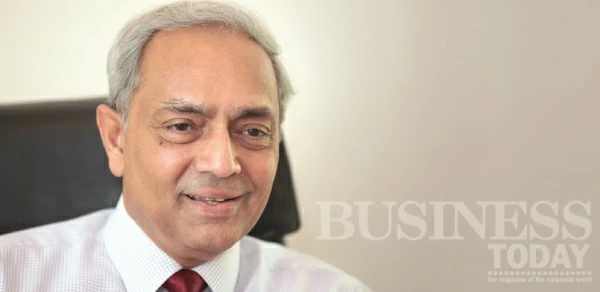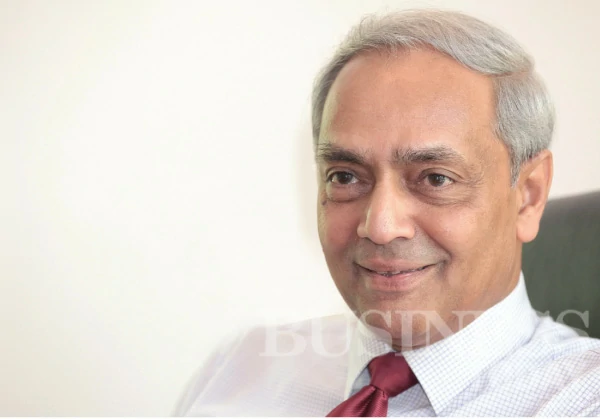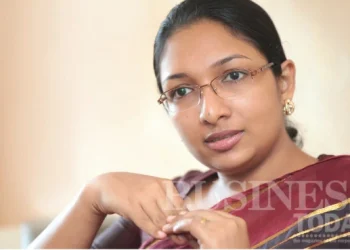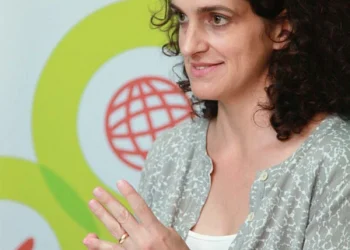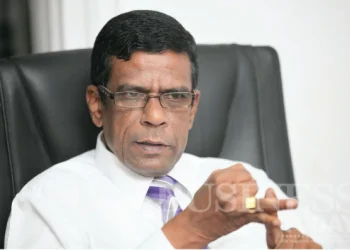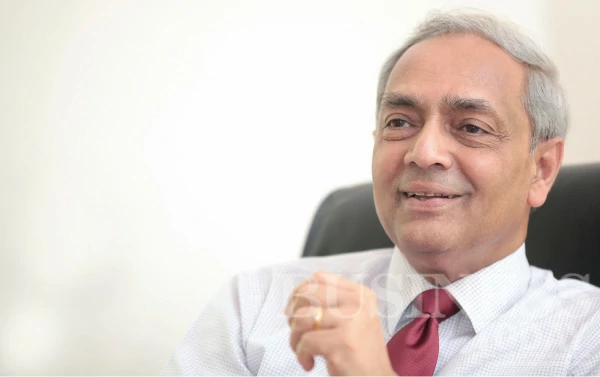
Chief Justice Mohan Pieris is a man to emulate. Simple and modest, yet strong in his action the Chief Justice forms the bedrock of the constitutional hierarchy. He has introduced many measures to improve the efficiency and accessibility of the legal system to the people of Sri Lanka, while taking it to a more modern era through the introduction of technology and capacity building of the judiciary. With a vast amount of experience in both the public and private sectors, Chief Justice Pieris requests the people of this country to lower the temperature where we should all take a moment to appreciate the simple things in life. He stresses the need for the country to work towards unity in diversity so that we journey forward together.
By Udeshi Amarasinghe Photography Menaka Aravinda and Mahesh Bandara
Can you elaborate on the mechanisms that you have put in place as the Chief Justice of Sri Lanka during the last year?
We focused essentially on addressing the delays in the system, that is the ways in which we can make the legal system more efficient and less expensive. We approached this issue from that point of view. This is not new, my predecessors too have attempted to find a solution to this problem of delays within the legal system. I feel that this can be approached in a very meaningful way. We focused on building capacity of judicial officers in managing their cases more efficiently by utilising case management techniques and encouraging alternate dispute resolution wherever possible without having to resort to litigation.
The first measure we have taken is to build the capacity of the judges. We have sent our judges for training to Bhopal in India, Singapore, Malaysia and also to Washington, USA. A sum not less than 32 million rupees was spent last year on training alone. That is the kind of capacity building the government has been supporting. The judges have responded generously to it and shown greater enthusiasm and commitment to use these new techniques that they have learnt. We have been able to sensitise the judiciary into approaching the whole issue of delays in a very meaningful way.
I Can Tell You That There Are Days That The Supreme Court Sits Till 5.00 In The Evening.That Is The Kind Of Commitment That I Have Been Able To Get From The Judiciary By Making The Conditions Better Thereby Inducing Them To Give Their Best.
We have also impressed upon the lawyers the need for them to have greater readiness and to present their case concisely in order to expeditiously deal and dispose of their cases. For that purpose we have ensured that the courts sit at 9.30 in the morning and continue till 4.00 in the evening. In other words the courts give their maximum time available to the lawyers to present their cases. It is commendable that our judges have responded to that call. I find today that every court without exception is functioning from 9.30 in the morning to 4.00 in the evening. I can tell you that there are days that the Supreme Court sits till 5.00 in the evening. That is the kind of commitment that I have been able to muster from the judiciary by making the conditions better thereby inducing them to give their best. Lawyers too have responded reasonably well to the call of disposing their cases quickly. We are now slow in giving dates because the simple theory that we follow is that you will not be given dates for the sake of a postponement.
In the meantime we have also looked at some of the old systems. Do we continue to follow the old practices or do we deal with matters that come before us by using contemporary techniques? One of the chief techniques that is being used globally is the use of the electronic medium, particularly information technology in the legal system. We are in the process of digitizing all our court records. For example in the Matara Civil Appellate Court every record will be digitized in the next one month. We will cover the entire Southern province in the course of the first half of this year and that programme will be applied to cover the entire Island where all the courts will be digitized. Then, in the Supreme Court I am starting a pilot project next month where we will be introducing e-filing and digitization of records. What all this means is that the entire process will be rationalised to accept technology and we will be working in a paperless environment very soon.
Case management is something that we have been trying to teach our judges by providing several training courses. We have even drawn on the resources of the United States. We had Judge Clifford Wallace, the Emeritus President of the United States Court of Appeals spend one week with us. He was able to give us an overview in case management, where he spoke to our judges in Colombo, Kandy, Galle and Jaffna. We are now utilising the new methods in case management while trying to have a set of practice directions in place. We will seriously discourage the postponement of cases.
In addition to the measures taken to make the system more efficient we have also established a dedicated family court; that is a dedicated court dealing with matrimonial cases. Court number seven in Hulftsdorp has a dedicated judge that deals with cases that concerns matrimonial disputes. This court also sits from 9.30 in the morning to 4.00 in the evening. Our target is to settle a matrimonial case within six months.
We Are Going To Establish A Court Where There Will Be A Judge Who Will Deal With The Execution Of Writs For The Recovery Of Money Or Property Or Whatever Declarations That Have Been Made In Favour Of The Plaintiff.
We have also established a Buddhist Ecclesiastical Court in Kandy to deal with all the temporalities cases. There are about 250 temporalities cases where the clergy is involved in temple disputes and temple properties. This dedicated court in Kandy hears cases throughout the day and is dedicated to the Sangha. We intend to open courts in Galle and in Ratnapura as well because it is in these areas that there are a high concentration of temporalities cases.
We are also looking at establishing a dedicated court for the execution of writs. Usually when you have a judgement in your hand, it takes another couple of years to enjoy the fruits of your victory. That is because the post trial phase is equally tedious as the trial stage, as it takes a long time to execute a writ in order to recover your money or property. We are going to establish a court where there will be a judge who will deal with the execution of writs for the recovery of money or property or whatever declarations that have been made in favour of the plaintiff.
These are some of the major measures that have been put in place, and will be put in place to speed up judicial work, which has been our principal objective. At the end of the day all that you want is to be heard quickly and for the case to be concluded quickly so that you will be encouraged to come back to court, to have confidence that the courts will actually deliver and resolve your issues speedily.
The general public as well as businesses are hesitant to engage with the legal system of the country. Do you feel that through the measures that you are implementing that this perception will change in the next few years?
Yes, definitely. I can probably tell you that recently there was a very important matter that came up in the Supreme Court. We used the technique of cutting through all formalities, by simply making a few orders to the original court to hear the case within one month. Much to the consternation of the lawyers who were ready to present a complex argument, the matter was sorted out within ten minutes. We also made a directive that in an event of an appeal being taken from that order the High Court judge who hears it will finish it in another one month. The directions that were given on that day ensured that the case would be concluded within two to three months.
The concerns of the public or the business community are not misplaced. But I can assure them that they will have better times to come. If we take the Commercial Courts I have made sure that the Commercial Courts sit the whole day and I have also pleaded with the Bar that they dedicate their time to finishing cases rather than moving for dates. In future applications for postponements will not be entertained. With the cooperation of the Bar and of course with these new measures adopted by the Bench, the business community can actually be assured of a speedy disposal of their cases.
I can certainly assure you with regard to financial matters the court will in a large measure recover the monies that are owed by lending agencies or organisations quickly. And, all dilatory measures that borrowers resort to will be discouraged with the strongest of measures. The recovery of large sums of monies lent by banks and institutions and the enforcement of contracts, the enforcement of arbitral awards will be done very effectively and efficiently. No person in the business community should be discouraged to enter into business contracts for the reason that the courts will now be quick to enforce contracts. And that any dilatory techniques will not be entertained by the courts in the future.
How will the litigation cost be reduced?
This is another aspect that we are looking at-whether in the future we need to follow all those rules that we have been following in the past having regard to contemporary developments. We are looking at some of the Supreme Court rules too. For example when an application is made in the Supreme Court, one is expected to file a petition with a supporting affidavit. Now if you read the contents of the petition and the contents of the affidavit, they are identical. It is an old English rule- a Supreme Court rule-to submit a petition with an affidavit. These are two sets of documents that say the same thing. But there is a very subtle difference between the two. In one they have a prayer, that is the relief you pray for and in the other you do not find the prayer. I cannot see the logic in actually having two sets of papers saying the same thing. We intend to change the rules to cut the fat. That is to file one set of papers instead of two. Even the paperwork will be less and cheaper.
The moment we introduce e-filing there will be two methods for filing; one is to file online from wherever you are and the other method is that you bring one set of papers and the Supreme Court will scan it into the system. The scanned material will go into an electronic medium that will be made available to the judges on the bench.
To that extent there will be a lot of fat that will be cut off and litigation will be cheaper. Today you see that in our courts, the fees charged for filing a case is very small compared to the actual cost. You will also observe that a litigant is unable to recover actual costs. The lawyers who are asking for postponement do not have to bear any cost. The parties pay their lawyers their fees and everyone goes home happy. But there is an element of cost. For example, the judge is provided at the cost of the state and there is an unseen cost to maintain the system. The whole infrastructure of our courts is free for a very small amount of stamp fees that you pay to cover costs. Hereafter, if there is a postponement, the person who seeks the postponement must bear the cost of that particular day. You can have the postponement but there will be a cost imposed. That is another method where we will probably use to defray expenses incurred by a person who is ready to commence the trial, but cannot because the other side wants another date. These are but a few examples of some of the measures we have taken to bring down the cost.
The courts are entitled to tax, “costs”, that is a mechanism that is adopted by the courts to ensure that a bill of cost when presented is within permissible parametres. The registrar of the court is entitled to tax the bill. These are provisions that need to be resorted to more frequently. But we will reintroduce such measures as time goes on. In other words there will be a sensible approach to fees and not an open cheque as far as legal fees and costs are concerned.
Case Management Is Essentially A Mechanism In Which The Court Controls The Case And Directs The Case To A Speedy Conclusion. Having Said That I Must Say That The Clients Too Must Have A Control Over Their Lawyers.
Lawyers’ fees are not actually in the realm of strict control for the fact that the market forces actually determine how much fees a lawyer should be paid. It is how the market perceives the value of their services. And it is entirely up to the lawyers to be reasonable about their fees. It is not an area that we can strictly control like perhaps the price control of merchandise. This is intellectual property that is being valued. How valuable it is, is anyone’s guess.
Talking about lawyers there is a perception that they prolong a case for their benefit. Is there a way of regulating lawyers in that sense?
Yes, that is exactly what case management would do. At the pretrial hearings they will narrow down the points of contest and fix the parties to a date of hearing or a date for further directions. There will be no postponement and there will be very quick disposal of cases. Case management is essentially a mechanism in which the court controls the case and directs the case to a speedy conclusion. Having said that I must say that the clients too must have a control over their lawyers. If they encourage lawyers to go to courts daily and come back without any kind of result then it is a useless exercise. This is a two-way process; the courts control the proceedings and make sure that everything is concluded quickly, which is case management and the other method is for the clients too, to know what their lawyers are doing. It is the lawyer’s duty to the client to explain to them as to why the case has been postponed. And how quickly he can get the case on the trial roll again. There has to be some pressure from the clients as well, after all there is a contract between a client and a lawyer. It is like any other contract. If you are dissatisfied with the contract, you can either break the contract and go to someone who can perform that contract better or you step up the fees. It is essentially a very commercial engagement.
If you walk into one of the court houses today you will see the number of applications made by the Bar, for postponements. That is something we are seriously taking up with the Bar with the view to arriving at a consensus on when and what kind of circumstances can be pleaded to postpone cases. For instance, whether we should do away with the granting of dates particularly when seniors are not available where a junior lawyer may be able to continue the case. These are the measures that are being considered and will be put in place soon.
If we look at the evidence ordinance in Sri Lanka, we are still hesitant to take electronically generated evidence such as SMS and emails as evidence. What are your thoughts on this?
The evidence ordinance itself has not gone through that much of change. But there are new laws for the reception of emails, SMS and computer-related evidence. I can tell you that the current trend is to admit SMS and emails. There have been several judgements recently where the courts have actually held that SMS and emails can be admitted, it is already here. Virtually everyone has a laptop or a mobile phone, which has all the features of a computer. There is a lot of activity that can be carried out in the field of law, which can be transmitted in an electronic medium. The pen, watch and typewriter are no longer important office equipment today. If you really have a good mobile phone, or a tablet there is much that you can do. We are going to allow the use of tablets in our courts. Tablets will be allowed to be taken in and used for filing and storing of case material. To that extent the evidence ordinance will have new provisions for the easy reception of computer evidence. We will see a very liberal attitude that the courts will adopt and we are training our judges to receive electronic evidence generously and not consider such evidence circumspectly.
There Is Absolutely No Barrier And There Should Not Be Any Reluctance Of Any Person, However Vulnerable Or Indigent That Person May Be, To Be Able To Just Pick A Postcard And Write To The Supreme Court. And That Ultimate Weapon, Any Member Of The Public Has…
You will appreciate that every printout from a computer is as good as another printout and a reproduction of the document in its original or amended form. We have this phobia that everything has to be certified as an original. That is a very archaic approach for the reason that if I was not producing an original, my opponent would be the first person to tell the court that this is not the original and the court can check on the authenticity of the document that is sought to be produced. What is the magic in certifying something, which might not be true. But if it is generated from a computer you can be very sure a hundred times over that it is the very same document. The hesitancy to receive computer evidence is the lack of knowledge and the lack of competency to work in cyber space. One begins to think that you can make any alteration in a computer, true you can, but you will be found out, if you have made an alteration. I do not think there are any phantom dragons in evidence generated from electronic devices. Young lawyers have no fear in using computers and as these youngsters become judges they will find it much easier to deal with electronic evidence. Sooner than later you will find electronic evidence being adduced in our courts as a matter of course.
How can we make the legal system more accessible to the public?
There is absolutely no barrier and there should not be any reluctance of any person, however vulnerable or indigent that person may be, to be able to just pick a postcard and write to the Supreme Court. And that ultimate weapon, any member of the public has. Pick a postcard and write to me and say that a particular injustice is happening particularly if fundamental rights are violated. I can tell you that nine out of ten times they will receive a response. That is invoking a very wide power that is in the system. It is called the epistolary jurisdiction of the Supreme Court.
There are 12,000 registered practitioners in this country, and many more passing out in large numbers. I cannot imagine not being able to find a lawyer in this country. In the suburbs and even in the remotest of villages you will find legal practitioners who render a yeoman service to the community. That is the reason that many lawyers end up becoming politicians in those areas. They are very popular because they offer so much of service. There is really no problem in access to the legal system and remember that this is supported by the Legal Aid Commission that offers free legal aid island-wide. They provide legal aid in almost all the remote villages including the North and East. We have legal aid clinics and every court has a legal aid office. You will never ever go without any representation. That is one of the strengths of our system. There are champion pro bono lawyers who provide free representation. The entire legal aid scheme offers services free to many people who cannot access the legal system. And you must remember that today we have NGOs all over this country and it is a matter of going to any one of them and they will gladly take your cause for more than one reason.
I really think we have come a long way from perhaps 25 years ago to what it is today. Anyone in the remotest of places has the capactity to take on a multinational on the environment or any other issue invoking the doctrine of public trust. We are far ahead than other jurisdictions in the aspect of access to legal services, because today legal services are available at a reasonable fee or through legal aid schemes. We have opened courts in the remotest of places and there are lawyers in those little villages who manage the legal system very well along with the judicial officers.
There Is A Symbiosis Between The Bench, The Bar And Perhaps Also The Public. I Have Been Able To Shift This To Another Level Today. It Gives Me A Great Amount Of Satisfaction To Think That I Have Been Able To Set The Tone For The Future.
You have ensured that you visit the many courts in this country on a regular basis.
I have visited almost all the courts in this country, without exception. In fact on days that I do not sit in court, that time is utilised to visit other courts in the country. We are just about to launch a programme where superior court judges will sit in a magistrate’s court for about an hour to observe proceedings with a view to identify the short-comings. We have built a very close rapport with the judges. It is a very time consuming and difficult task but it is worth the effort. There is a sense of belonging. They now know that there is a person that they can look up to and guide them. The partnership is fantastic. Of course there is a quid pro quo. I have told them that the people in this country will invest in them provided that they give them a good return like any other investment. That concept has been understood. After all why should you invest in a judiciary when there is no return? What is the return the public want? A quick cheap disposal of their cases. The judges have now understood that. There is a symbiosis between the Bench, the Bar and perhaps also the public. I have been able to shift this to another level today. It gives me a great amount of satisfaction to think that I have been able to set the tone for the future. I have another three years to go before I part company with this job. By the time I finish, I am sure my successor will have a strong foundation to build on easily to take the judiciary to a different level. The public can be assured of a far more efficient legal system by the time I finish my tenure as the Chief Justice.
Can you tell us about yourself?
My mother was a teacher and my father was a public servant. I studied at St Josephs College and then at Royal College. I was quite good in my studies and sports too. Then I went to law school, where I completed my legal studies and was called to the Bar in June 1975. I qualified as a solicitor in England. I trained there under the Commonwealth scheme and then I worked there for a few years. In 1981, I returned to the country. I joined the Attorney General’s Department as a prosecutor, where I spent almost 15 years and I retired from the Attorney General’s Department in 1996 as Senior State Counsellor. And then I went into private practice. From day one it was an exciting time and there was no stopping. I built-up a very lucrative and vast practice where I did almost every type of case. I had behind me, my experience in Sri Lanka and in England and the 15 years in the Attorney General’s Department where I did both civil and criminal work, which equipped me fully to take on the profession. There was nothing that I was not really familiar with. It was a matter of picking my choice of cases and building up a substantial practice. During that time I was also the legal consultant for the Ministry of Defence and to the Central Bank. I continued to engage in Human Rights work with the government. I have been in the UN delegations for a number of years. In 2008, I was invited to assume the post of Attorney General. I was the Attorney General (AG) for just short of three years. And as the AG, I was able to bring major changes to the AG Department in terms of prosecution and representing the state. During that time I was able to spearhead some of the major litigation that this country ever faced such as the hedging cases that were filed in England and Singapore where claims were made against the Republic. These cases were resolved on very favourable terms due to the highly professional manner in which the team of lawyers from the AG’s Department led by me and our counsel in England handled the matters. Of course it was the height of the conflict and I was able to, as the AG and member of the Sri Lankan delegation to the UN Human Rights Council, to present our case pretty effectively. When I turned 60 in 2011 I reverted to my private practice for almost two years when I was called upon to come back to the public service, as Chief Justice on January 15, 2013.
There was a lot of turbulence at that time but that really did not bother me because I had weathered the turbulence for so many years in other quarters. I had to settle down to do what I needed to do. Quite contrary to popular belief the transition was not difficult at all. I had the total cooperation of the judges from day one. That was because I was able to lead from the front as there was nothing that I was not familiar with. That was my real success. I understood issues pretty well whether it be criminal, civil, constitutional, human rights or whatever it may be. I had the competency having worked the entire canvass of the public sector as well as the private sector. Very few Chief Justices had the privilege of working at the Bar for half his lifetime and in the government for the rest, which I had. That advantage came in very handy because I could understand what a practitioner requires and understand precisely what the judge requires having practiced on both sides of the divide, or perhaps all three sides of the divide. I was also the Chairman of Seylan Bank during which time I gained tremendous insight and knowledge into matters of banking and commerce. This is the rich experience that I have had the benefit of.
There Is A Growing Tendency To Misunderstand The Whole Concept Of The Freedom That We Enjoy. Today The Feeling Is That Anyone Can Do Anything They Want And Get Away With It.
Professional life, therefore has been very enriching and comfortable for me. In that sense I have never had a sleepless night, perhaps because of the competencies that God has blessed me with and the support that I have always got in whichever quarter I was in. I was actually able to turn dreams into reality and people have rallied around me. For example take the restructuring of the Law College, perhaps no one would have ever dared to have done that without the support from all quarters. Restructuring was required because the Law College is the cradle that nurtures legal professionals. I am confident that if the public are sure that you are doing the right thing you will get every support that you need from them. And that has perhaps been my success. Of course there are many people who are uncomfortable with change. Naturally no one likes change and lawyers are no different. They now realise that there must be a method even to madness. Everything has settled down. Things are working pretty smoothly. If you sit in my court you will see a calm, quiet peaceful environment in which we talk to each other in a very civil manner, the dispute resolution mechanism is working well. People are very comfortable, what more do you want?
Final thoughts?
I have a message for the public. There is a growing tendency to misunderstand the whole concept of the freedom that we enjoy. Today the feeling is that anyone can do anything they want and get away with it. This culture of thought has been supported heavily by the media as well. If you read the newspapers, listen to the radio or watch the news on tv there is nothing really pleasant. The news is full of the negative elements of life rather that striking a proper balance. You must remember that there are thousands of people who are doing good things every day. Otherwise this country would not be the peaceful one it is. But no one talks of these good things. And it is sad to observe that it is our very own people that run the country down for material gain from outsiders. It is therefore important that we as Sri Lankans are unconditionally patriotic to the nation.
Today there is a tendency to run to court for the slightest thing, when most of the disputes could be resolved in a temple, church or within the family. Small issues are blown out of proportion. That is why we have such a large number of cases in our courts. Our courts are not meant to nor designed to take on this kind of a load. This is one of the chief reasons why we intend to introduce court assisted alternative dispute resolution in the near future. India has employed this mechanism very successfully.
Just about a few days ago we had an application from a bus owner in the South asking the Supreme Court to fix the timetable, which the authorities had failed to do for an operation of a bus, which failure the operator complained is a violation of his fundamental rights. Think about it, has this complaint the remotest connection with the infringement of fundamental rights? I can assure you that there are hundreds of applications of this nature, which unnecessarily overload the system.
Today there is sensationalisation of crime, bad behaviour and corruption, virtually giving it pride of place. The media makes the criminal a hero. This is the depths to which our society has plunged. Human life has become valueless today, a person being severly injured or fatality is accepted as a matter of routine. It no longer shocks the community.
I can only recall Justice A R B Amarasinghe, where he says in his book on ethics that ‘Life is a Duty.’ I would like to tell the public that ‘life cannot be taken very lightly, it is not to be trifled with’. I have travelled far and wide all over the world to see the freedoms that people enjoy in other jurisdictions. The freedoms we enjoy in this country is on par with or even greater than the freedoms enjoyed in most other countries, contrary to the image that the anti Sri Lanka protaganists seem to portray. In this context the following statistics will be interesting. Sri Lanka has more than 11,000 Buddhist temples, more than 4,300 Hindu kovils, more than 2,100 Islamic mosques and more than 1,200 Christian churches, where more than 50,000 clergy of different religions live in peace and harmony. Sri Lanka is also a country with 65 registered political parties, 31 local tv channels, 60 local radio stations and 35 local newspapers, all beaming, broadcasting and publishing news and other features on a 24/7 basis. Articles and news items are published or beamed against the Executive, political persons, officials and others daily. Further, for 20.6 million people of the country, there are over 24 million mobile connections in use, while 30 percent have unfettered internet facilities. Aren’t these conditions then demonstrative of a vibrant environment of freedom, democracy and transparency? And that is precisely what is being abused.
The freedom to do what you will does not mean that one is entitled to do what is unlawful, unwarranted, illegal with reckless disregard to the rights of your neighbours, the community and the country at large. We need to lead a disciplined and moral life as much as we can. Of course we all suffer from human frailty, we fall from grace from time to time. But we need to correct ourselves. Look at the types of cases being heard in court, for example the government wants to relocate some tenements to better accommodation but there are protests saying not to relocate. I recently asked counsel whether he was seriously asking the court to make an order that the tenements remain in their squalor or whether we relocate them to better accommodation. Finally sanity prevailed when I reasoned with them, and at the end, counsel agreed that the orders made by the Supreme Court could not have been more equitable. The tenants were paid two years rent upfront on the condition that they will return to their very own accommodation in a high rise modern apartment complex.
Then we have another group that says that we should not set the examination papers at Law College in the English language not withstanding the fact that the medium of instruction at the Law College is English. This is a matter under review as there is some merit in that plea. But, what is however interesting is that it is the very protestors who have their children studying abroad in English. They come back with degrees and secure important positions in the public and private sectors. Look at the contradiction in this thought process. The confusion is created by those who actually have, they are not thinking of the less privileged. My humble view is that the standards we adopt must be uniform for all. Unfortunately, we are not born equal. This is one of the supreme ironies of creation but, at least we must be sensitive to those who are less fortunate and bridge the gap as much as possible.
We Can Soon Take Today’s Sri Lanka To A Different Level, Where Every Citizen Can Live In Peace And Dignity In A United Sri Lanka.
A person once told me, “Chief Justice, the world is the world it is and the world has to go on”. True, the world will go on, this argument will also go on, for another thousand years but what I am saying is that we need to lower the temperature of the competitive environment we live in and learn to be temperate in our relationships with our neighbours. Today, every little thing is politicized by a segment of the community who seize upon such events for political expediency. We have to bring the temperature down and start leading a sedate life. When I say a sedate life I do not mean to live the life of a missionary, we must enjoy life as we did in those days. As a youngster on weekends we would visit our relations. We never went to five star hotels to dinner as frequently as today. We visited the homes of our relatives, went to a church or temple and went on little picnics. These were the type of luxuries that we enjoyed. We went to libraries, swimming, dancing classes and theatre. Today, it is either tuition classes or going to a resort or dining and wining in some exotic location. Of course the world has changed. There is a growing impatience to achieve excellence. My question is, can it be at any cost or do we achieve excellence having due regard to human decency? We are completely consumed in materialism and have lost sight of the real values of life. As adults we need to lead exemplary lives. Youngsters must appreciate the fact that they have an obligation to excel in their studies, and lead a temperate life. We can actually take Sri Lanka to a different level within our own cultural system, our own religious values and within our own ethnicities.
We need to embrace unity in our diversity. That is very important. If we achieve that, the entire reconciliation, reconstruction and reintegration process can be a great success. We can soon take today’s Sri Lanka to a different level, where every citizen can live in peace and dignity in a united Sri Lanka.
